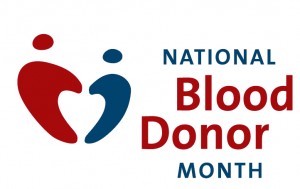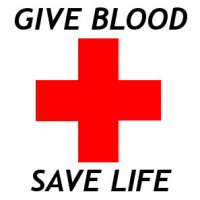National Blood Donor Month has been observed in January since 1970 with the goal of increasing blood and platelet donations during winter which is one of the most difficult times of year to collect enough blood products. During winter, inclement weather and seasonal illnesses like the flu often result in lower donations.
According to the American Red Cross:
- Someone in the U.S. needs blood every two minutes.
- An average of 15,000 pints of blood must be collected every day to meet the requirement.
- One blood donation can help save up to three lives.
- Approximately 38% of the U.S. population is eligible to donate, less than 10% do so.
- The blood type most often requested by hospitals is Type O. Only 7% of people in the U.S. have an O-negative blood type, making them universal donors as their blood can be given to people of all blood types.
- Type O-negative blood is needed in emergencies before a patient’s blood type is known and for newborns who need blood.
- Red cells, platelets, plasma and cryoprecipitate can all be derived from donated blood. Typically, two or three of these are produced from a pint of donated whole blood.
- Red cells and platelets have a short shelf life making new donations a constant need.
- Approximately one pint is given during a donation.
Donors are given a mini-physical during which their temperature, blood pressure, pulse and hemoglobin are checked to ensure that it is safe for the donor to give blood. Information given during the donation process is confidential and may not be released without the donor’s permission except as directed by law. The process takes about an hour and 15 minutes and the actual blood donation part of that is 10- 12 minutes.
12 minutes.
Give blood
The Red Cross urges donors of all blood types – especially O negative, A negative and B negative – to schedule an appointment to donate blood.
A blood donor card or driver’s license or two other forms of identification are required. Individuals who are 17 years of age (16 with parental consent in some states), weigh at least 110 pounds and are in generally good health may be eligible to donate blood. High school students and other donors 18 years of age and younger also have to meet certain height and weight requirements.
Be a blood donor
Call 1-800-RED CROSS (1-800-733-2767) or visit www.redcrossblood.org to make an appointment or for more information.


